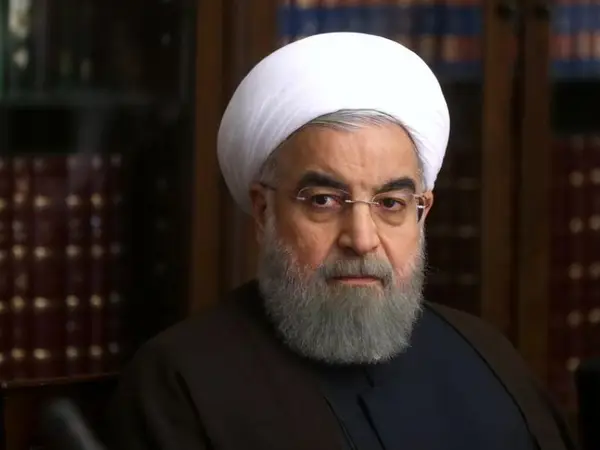Iran's parliament will soon consider a report on former president Hassan Rouhani's performance in managing the Covid pandemic, which has claimed 126,000 deaths.
Conservatives and hardliners, including members of parliament, give any credit for the accelerating vaccinations to the new president, Ebrahim Raisi (Raeesi), who took office in August. With the program speeding up, 40 percent of the population is now fully vaccinated.
While critics accuse Rouhani, who chaired the National Covid Combat Taskforce, of mismanagement, supporters of the previous president say that vaccines imported since Raisi took office were procured by the Rouhani administrationin the last weeks of his presidency.
The Rouhani administration did try to procure Covid vaccines earlier when they became available in late 2020. But soon Supreme Leader Ali Khamenei ruled out importing United States- and British-made Covid-19 vaccines on the grounds that western drug companies had a track record of testing products in developing countries and that it was “not unlikely they would want to contaminate other nations.”
At the time, the US-German Pfizer, US-made Moderna and the British-made AstraZeneca were the leading vaccines internationally. In fact, American vaccines were also being produced in European plants, but Khamenei’s ban remained in effect.
In early July, a severe fifth pandemic wave hit Iran and because of slow vaccination infections soared killing around 40,000 more people in three months. The public began openly accusing Khamenei of being responsible for the disaster with his ban on Western vaccines.
When Raisi took office on August 6, Iran had administered 14.7 million doses of the Covid vaccine, with nearly 3 million people fully vaccinated. The figure has now risen to 86 million doses, with 33.6 million people fully vaccinated.
In August, just as Rouhani was preparing to hand over the presidency to Raisi, the daily Covid death toll was around 700.It has now dropped to around 130.
For months, hardliners in parliament have been calling for Rouhani's prosecution on various grounds. A parliamentary committee on October 12 submitted a formal lawsuit against the former president to the judiciary urging Rouhani's prosecution for misconduct and failure to carry out his duties during his two terms of presidency.
Critics of Rouhani argued his presidential strategy based on a nuclear deal with world powers and increasing trade with Europe and with international energy majors floundered when former United States Donald Trump left the 2015 nuclear deal in 2018 and imposed ‘maximum pressure’ sanctions. They charge his economic policies did little to help poorer Iranians.
Rouhani and his administration were widely criticized for mismanaging the Covid crisis in not enforcing a lockdown soon enough after the pandemic hit Iran in February 2020, did not provide sufficient support to less well-off Iranians, and did not take a firm stand against a religious establishment that resisted social distancing and closure of religious venues.
Despite the text of Khamenei's public speech in which he emphasized that procuring vaccines from the US and Europeans countries was ruled out, in recent months his supporters have claimed that he had not banned foreign vaccines and only ordered them to be imported from "safe and secure sources."
